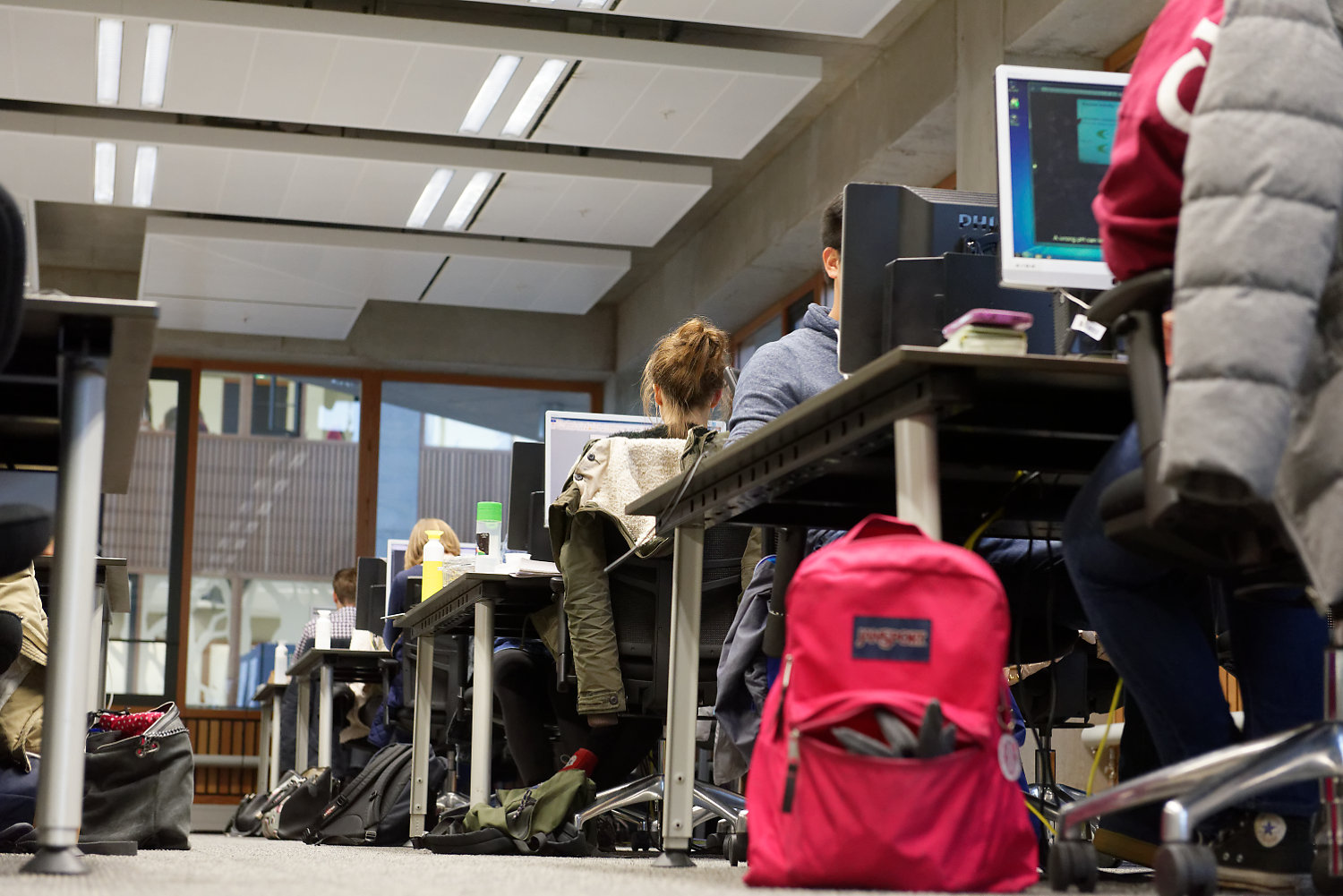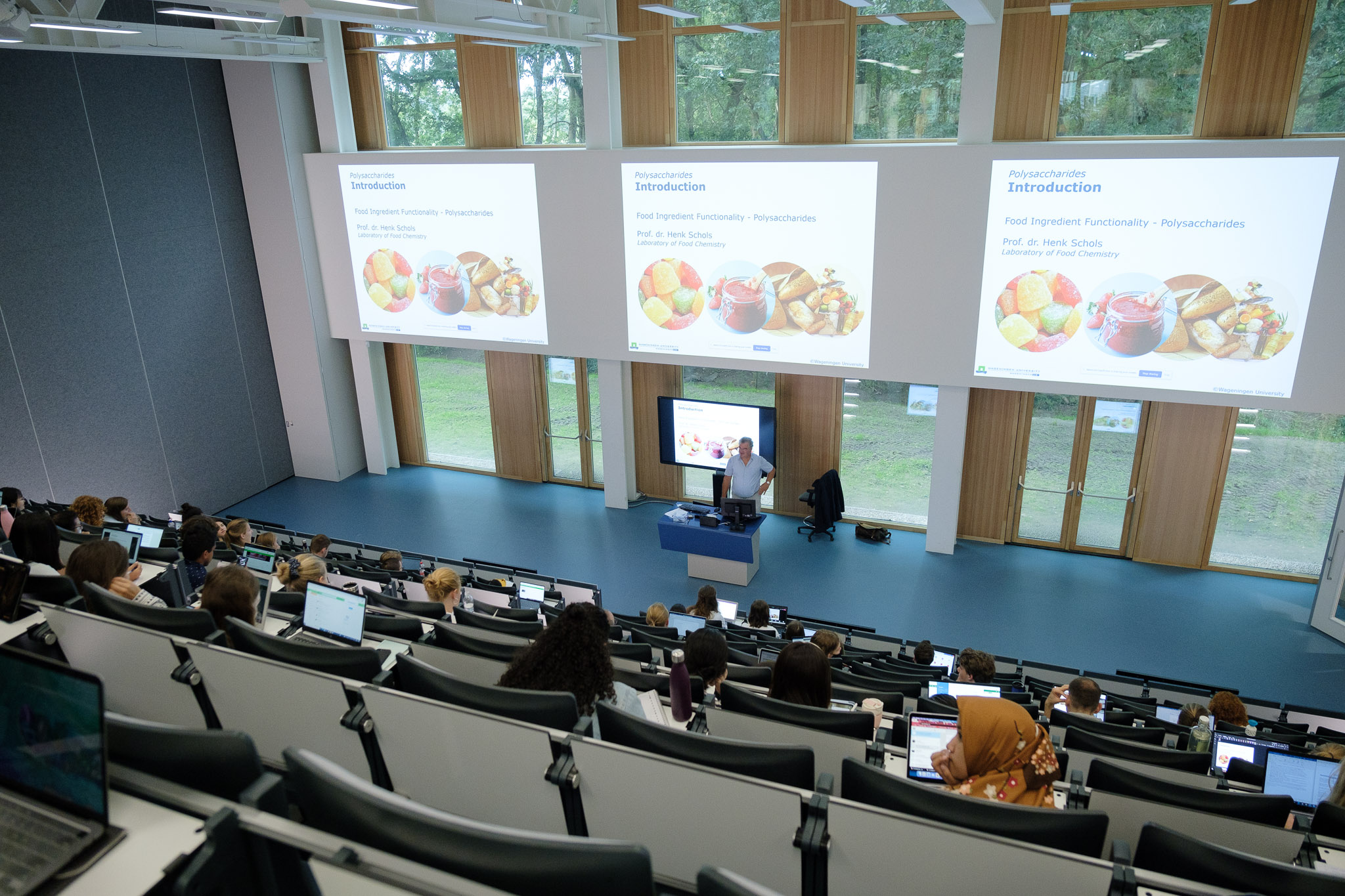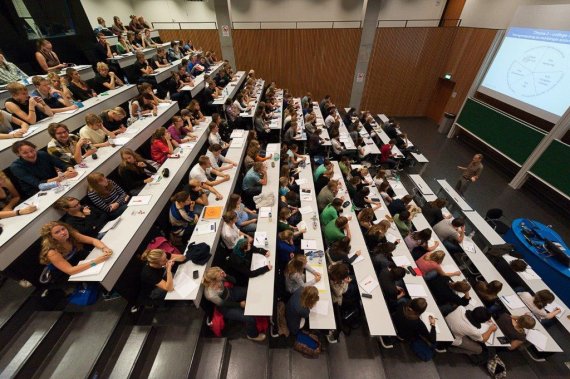The divergent views members of the cabinet held on immigration were sometimes palpable in the domain of higher education. In particular with regard to refugees and internationalisation.
Robbert Dijkgraaf (D66) has ‘very mixed feelings’ about the fall of the cabinet, he said in a preliminary reaction on Friday evening, even before the hastily planned ministerial council meeting had begun.
Refugees
Migration policy occasionally affected Dijkgraaf’s portfolio, for example, in the case of Ukrainian students. GroenLinks MP Lisa Westerveld asked why these war refugees are required to pay such steep tuition fees in the Netherlands. Why can’t they pay the normal fees for a study programme?
‘Ms Westerveld’s idea is a sympathetic one’, Dijkgraaf responded. He lacked support in the cabinet, however. ‘We will include the general measures in the broader discussion on immigration, which are yet to be finalised’, he said.
That the former scientist held a different opinion was apparent. If it were up to him, refugees would pay the lower tuition fees. The minister stressed that education institutes could take it upon themselves to support the refugee students. ‘And, they did. A very sympathetic gesture’, he said, adding that he hopes that the institutes will ‘continue to show that the Netherlands welcomes students from war-torn regions next year.’
Internationalisation
The tuition fees are a relatively minor issue that institutes can solve as they see fit. The issue of migration also affected Dijkgraaf in his policy for the internationalisation of higher education.
At the opening of the academic year in Maastricht, where the majority of the students are international, Dijkgraaf mocked the annual tradition of raising the alarm in the press on the issue of internationalisation. He was likely referring to stories about first-year students having to resort to camping due to a shortage of suitable housing. But he wants internationalisation to be considered separate from such issues as ‘there are clearly huge benefits for the employment market and the quality of education.’
But do his colleagues in the cabinet share his views? It took longer than expected for Minister Dijkgraaf to send his plans for internationalisation to the House of Representatives. The delay was in part due to the ‘broader discussion about migration’ in the cabinet, he wrote in a memo on the delay. He was forced to navigate between his own preference for open and international education and the other parties’ concerns about migration. In April, he submitted his letter on internationalisation.
Difficult
The minister would prefer not to restrict the influx for certain sectors. He wants a tailored approach for studies such as IT and technical programmes and for programmes related to sectors where the employment market lacks personnel. Most political parties should be able to support this idea.
But he is open to approaches that vary per region. Universities and university colleges near the German and Belgian border, for example, have a ‘different position’ where internationalisation is concerned, he says. Some parties disagree.
Hatte van der Woude (VVD) stated during a debate that ‘training Germans in an English-spoken programme for psychology does not make sense to us.’ Pieter Omtzigt referred to the psychology programme in Maastricht and Enschede: ‘They are English-spoken. Eighty per cent of the students are from Germany, and 90 per cent of these students go back home.’ This debate will surely be reignited now that the cabinet has fallen.
Other consequences
There are other consequences as well. Some of Dijkgraafs plans will be delayed. It is highly unlikely that the outgoing government will decide on the binding study advice, for example. Dijkgraaf is eager to ease the criteria, but VVD is vehemently opposed.
He also had plans to address the funding of higher education. This is possibly the most sensitive part of the extensive ‘future perspective’ he is working on. The job will probably be passed on to his successor.
Continue
Other things will continue as normal, however. The basic grant will be reinstated as of September, and the hundreds of millions of euros for education and science are also mostly allocated, including what they are to be spent on.
The main question is for how long the outgoing cabinet will continue to govern. The elections will probably be held in September, after which the coalition negotiations will take place. Dijkgraaf could easily remain in position for another year and a half.
And who knows, D66 might partake in the government again, in which case Dijkgraaf could continue as Minister of Education, should he so choose.
HOP, Bas Belleman

 Ministry of Education, Culture and Science in The Hague. Photo Shutterstock
Ministry of Education, Culture and Science in The Hague. Photo Shutterstock 

